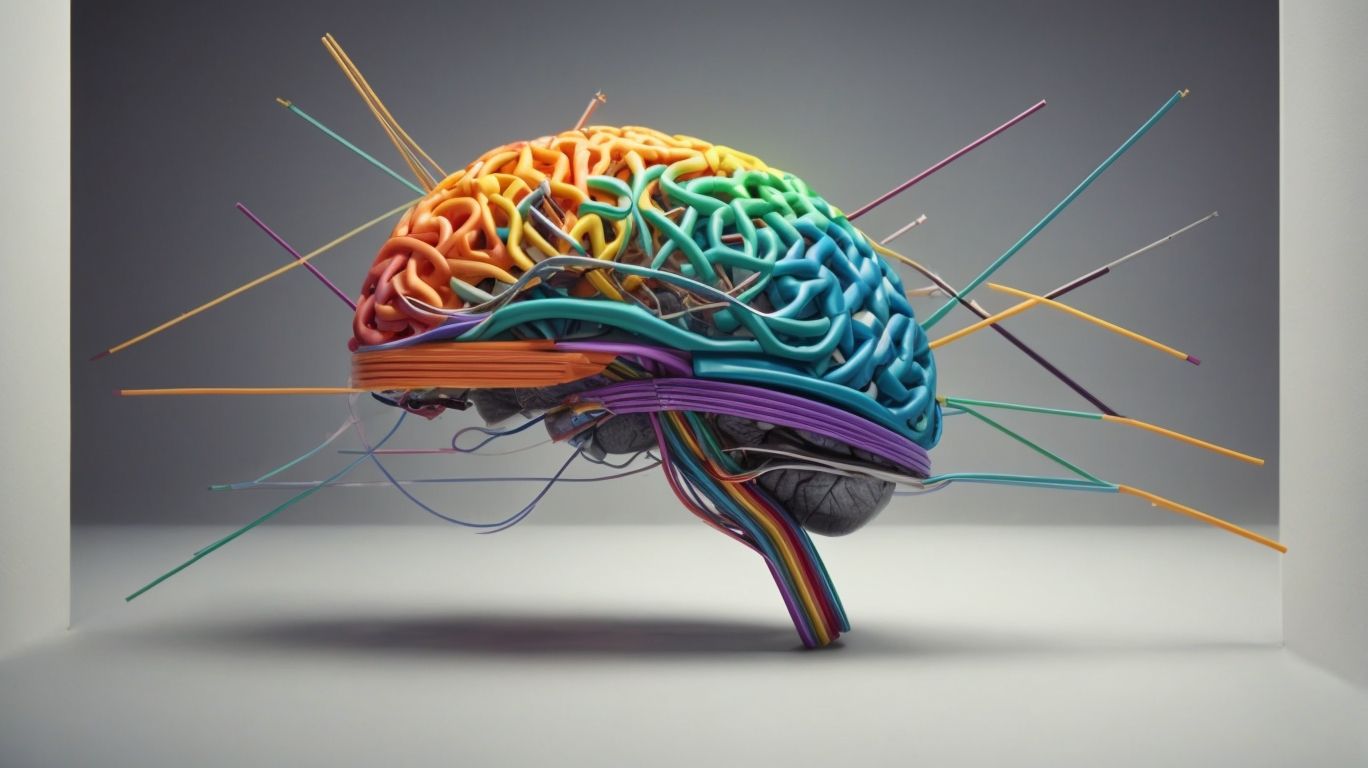Curious about the complexities of human development in psychology? From the psychodynamic perspective to the ecological viewpoint, this article explores the various theoretical perspectives that shape our understanding of how individuals grow and change over time.
Delving into applications such as child development, aging, and cross-cultural influences, this piece offers a comprehensive look at the diverse applications of human development in the field of psychology.
Join us on this fascinating journey into the world of human development!
Contents
- 1 What is Human Development in Psychology?
- 2 Theoretical Perspectives on Human Development
- 3 Applications of Human Development in Psychology
- 4 Frequently Asked Questions
- 4.1 What is human development in psychology and why is it important to understand?
- 4.2 What are the main theoretical perspectives in understanding human development in psychology?
- 4.3 How do psychoanalytic theories explain human development?
- 4.4 What is the role of environmental factors in behavior according to behaviorism?
- 4.5 What is the cognitive perspective and how does it explain human development?
- 4.6 How can understanding human development in psychology be applied in real life?
What is Human Development in Psychology?
Human development in psychology refers to the process of growth, change, and stability that occurs throughout the lifespan in individuals.
This dynamic process encompasses physical, cognitive, emotional, and social changes that occur from infancy to old age. From the early stages of infancy, where individuals learn to crawl, walk, and speak, to the later stages of life where wisdom and reflection become prominent, human development reflects the interaction of nature and nurture. Developmental psychology studies how individuals evolve and adapt over time, examining factors such as genetics, environment, and social interactions that shape their growth trajectory. Understanding these psychological perspectives can enlighten us on the complexity and beauty of human development.
Theoretical Perspectives on Human Development
Theoretical perspectives on human development encompass various approaches such as behaviorism, cognitive psychology, psychodynamic theory, humanistic psychology, and the biological perspective.
In behaviorism, B.F. Skinner emphasized the role of environmental stimuli in shaping behavior through reinforcement and punishment.
Cognitive psychology, influenced by figures like Jean Piaget, focuses on mental processes such as perception, memory, and problem-solving.
Psychodynamic theory, founded by Sigmund Freud, delves into the unconscious mind and the impact of early childhood experiences on development.
Humanistic psychology, advocated by Carl Rogers, emphasizes the importance of self-actualization and personal growth.
The biological perspective examines how genetics, neurochemistry, and brain structures influence human development.
Psychodynamic Perspective
The psychodynamic perspective in human development, pioneered by Sigmund Freud, emphasizes the role of unconscious processes, early childhood experiences, and the interplay of id, ego, and superego in shaping personality and behavior.
Freud’s psychosexual theory, a foundational element of the psychodynamic perspective, outlines distinct stages of development, starting with the oral stage where pleasure is centered around the mouth, leading to the anal stage focusing on control and orderliness. Subsequently, the phallic stage introduces the Oedipus complex, with the latency stage emphasizing social and intellectual development before culminating in the genital stage marked by mature sexual relationships.
Each stage is crucial, as unresolved conflicts or fixations can lead to issues in later life, demonstrating the lasting impact of early experiences on personality. The influence of unconscious desires, often stemming from childhood experiences, shapes individuals’ thoughts, emotions, and behaviors, playing a significant role in psychodynamic perspectives.
Behavioral Perspective
The behavioral perspective, associated with Ivan Pavlov and B.F. Skinner, focuses on observable actions, reinforcement, conditioning, and how external stimuli influence behavior and learning in individuals.
One of the key concepts within behavioral theory is Pavlov’s classical conditioning, where a neutral stimulus becomes associated with a reflex response through repeated pairings. This type of learning involves the automatic, unconscious response to a stimulus.
On the other hand, Skinner’s operant conditioning is based on the premise that behavior is shaped by its consequences. Positive reinforcement, negative reinforcement, and punishment are pivotal elements in this form of conditioning.
Cognitive Perspective
The cognitive perspective in human development, rooted in cognitive psychology, examines internal mental processes, information processing, memory, problem-solving, and how individuals perceive, think, and understand the world around them.
One of the key tenets of cognitive development theory is the concept of schemas, which are mental frameworks that help organize and interpret information. These schemas evolve as individuals interact with their environment, assimilating new information into existing schemas or accommodating by adjusting their schemas to fit new experiences.
Equilibration is another fundamental principle proposed by Piaget, emphasizing the balance between assimilation and accommodation. According to Piaget’s stages of development, children progress through sensorimotor, preoperational, concrete operational, and formal operational stages, each characterized by distinct cognitive milestones and abilities.
Humanistic Perspective
The humanistic perspective, championed by Carl Rogers and Abraham Maslow, emphasizes human potential, self-actualization, personal growth, and the importance of free will and subjective experiences in human development.
At the core of humanistic psychology lies Maslow’s hierarchy of needs, a theory that suggests that individuals are motivated to fulfill certain needs in a hierarchical order, starting from basic physiological needs such as food and shelter to higher-level needs like self-esteem and self-actualization. This hierarchy serves as a roadmap for understanding human motivation and behavior, highlighting the innate drive for personal fulfillment and growth.
Rogers’ person-centered therapy is another key pillar of humanistic psychology, emphasizing the importance of empathy, genuineness, and unconditional positive regard in therapeutic relationships. This approach places the individual at the center of the therapeutic process, focusing on creating a supportive and non-judgmental environment that enables clients to explore their own thoughts, feelings, and experiences.
Ecological Perspective
The ecological perspective in human development, grounded in sociocultural theory, examines the influence of social environments, culture, relationships, and systems on individual growth, learning, and behavior.
Sociocultural influences play a pivotal role in shaping an individual’s life journey. This perspective emphasizes the interconnectedness between an individual and their surroundings, considering not just immediate interactions, but also broader societal structures. In essence, it delves deep into how societal norms, values, and traditions impact personal development. Bronfenbrenner’s ecological systems theory further expands on this concept, categorizing influences into microsystems, mesosystems, exosystems, and macrosystems, illustrating the multifaceted layers of influence on human development.
Applications of Human Development in Psychology
The applications of human development in psychology cover a wide range of areas including child development, adolescent growth, adult transitions, aging processes, developmental disorders, cross-cultural variations, gender influences, and psychopathological development.
Child development is a crucial field that focuses on the physical, cognitive, and socio-emotional growth of individuals from infancy through adolescence. Key theories like Piaget’s stages of cognitive development and Erikson’s psychosocial stages play a significant role in understanding children’s developmental milestones.
Adolescent growth involves examining the challenges and changes that occur during puberty and the transition into adulthood. Concepts like identity formation, peer relationships, and risk-taking behavior are central to this stage of development.
Adult transitions encompass significant life changes such as marriage, parenthood, career advancements, and retirement. Theories like Levinson’s Seasons of a Man’s Life and Neugarten’s Social Clock theory shed light on the various paths individuals take as they navigate through different life stages.
Child Development
Child development in psychology focuses on the physical, cognitive, emotional, and social growth of individuals from infancy through adolescence, exploring milestones, attachment, cognitive abilities, and socio-emotional development.
One of the influential theories that shape our understanding of child development is attachment theory, which emphasizes the importance of secure relationships in early childhood for healthy emotional development. This theory highlights the significant role that caregivers play in forming a child’s sense of security and trust. Alongside this, various cognitive milestones are observed as children progress in areas such as language acquisition, problem-solving, and memory development. The capacity for emotional regulation is a key aspect of socio-emotional development, enabling children to manage their feelings and behaviors effectively.
Adolescent Development
Adolescent development delves into the physical, cognitive, emotional, and social changes that occur during the transition from childhood to adulthood, addressing identity formation, peer relationships, risk-taking behaviors, and moral development.
One of the significant challenges of adolescence is the struggle to establish a sense of self-identity and autonomy while navigating societal expectations and peer pressures. Erikson’s psychosocial stages offer a framework to understand these conflicts, emphasizing the critical role of developing a strong sense of self and purpose. Peer influence plays a monumental role in shaping adolescents’ attitudes, beliefs, and behaviors, sometimes overshadowing parental guidance. This period is also marked by the formation and evolution of moral reasoning, where individuals begin to contemplate ethical dilemmas and make decisions based on internalized principles.
Adult Development
Adult development in psychology encompasses the physical, cognitive, emotional, and social changes that occur throughout adulthood, including career transitions, relationship dynamics, generativity, and the impact of life events on growth.
One of the prominent theories that sheds light on adult development is Erikson’s stages of psychosocial development, which identifies eight stages individuals go through across their lifespan, emphasizing the importance of resolving conflicts at each stage to achieve psychological well-being and growth. These stages range from trust vs. mistrust in infancy to integrity vs. despair in late adulthood.
Midlife, often characterized by transitions and evaluations, marks a critical period where individuals may reassess their goals, values, and accomplishments, leading to introspection and potential redefinition of their identity and purpose.
Aging and Gerontology
Aging and gerontology in psychology examine the physical, cognitive, emotional, and social changes associated with growing older, addressing topics such as cognitive decline, memory changes, social support, and successful aging strategies.
As individuals age, the body undergoes a series of physiological changes such as decreased muscle mass, reduced bone density, and changes in sensory perception. These changes can often lead to physical challenges and increased vulnerability to health issues.
In terms of cognitive functioning, aging can impact memory, processing speed, and executive functions. Researchers in the field have proposed various theories of successful aging, emphasizing factors such as maintaining physical activity, engaging in social interactions, and adopting healthy lifestyle habits.
Cognitive interventions, such as brain training exercises and mental stimulation, are being explored to support cognitive health in older adults.
Developmental Disabilities
Developmental disabilities in psychology focus on conditions that impact physical, cognitive, and emotional development, such as autism spectrum disorders, intellectual disabilities, and challenges in adaptive functioning.
People with developmental disabilities may face difficulties in communication, social interaction, and daily living skills. One key aspect of intervention strategies involves individualized support plans tailored to specific needs. These plans often include speech therapy, occupational therapy, behavior modification techniques, and educational programs. Societal support is vital for individuals with developmental disabilities, encompassing accessible infrastructure, inclusive education systems, employment opportunities, and community integration programs. By creating an inclusive and understanding environment, society can significantly enhance the quality of life for individuals with developmental disabilities.
Cross-Cultural Development
Cross-cultural development in psychology examines how cultural contexts, values, and beliefs influence human growth, behavior, and identity formation, emphasizing diversity, multiculturalism, and cultural adaptation.
The impact of culture on development can be profound, shaping the way individuals perceive themselves and interact with the world around them. Cultural frameworks provide a lens through which to understand these complex processes, highlighting the intricate web of social, historical, and environmental factors that influence an individual’s development.
Identity negotiation is a crucial aspect of this journey, as individuals navigate the cultural adaptation process, balancing their original cultural identity with new cultural influences. Through this intricate dance of maintaining tradition and embracing change, individuals engage in a continual process of growth and transformation.
Gender and Development
Gender and development in psychology explore how gender identities, stereotypes, and societal expectations influence individual growth, self-concept, interpersonal relationships, and career choices.
One influential theory in understanding the role of gender in development is the Gender Schema Theory. This theory suggests that individuals internalize societal expectations related to gender from a young age, which in turn shapes their behaviors and perceptions.
Socialization processes play a crucial role in reinforcing gender role expectations within different cultures and communities. These expectations can impact various aspects of life, from childhood play patterns to adult career decisions.
By looking into the intricate web of gender influences, psychologists strive to unravel the complexities of how gender shapes individuals’ experiences and development.
Developmental Psychopathology
Developmental psychopathology in psychology focuses on the study of psychological disorders and atypical development in children and adolescents, addressing risk factors, resilience, early interventions, and the impact of mental health on growth.
In understanding the complexities of developmental psychopathology, it is crucial to recognize the diverse array of challenges that young individuals may face, such as anxiety disorders, ADHD, autism spectrum disorders, and depression. These conditions often require a multi-faceted approach that considers both genetic predispositions and environmental influences.
Protective factors play a significant role in mitigating the impact of these disorders, including strong family support, positive peer relationships, access to mental health services, and effective coping strategies. Therapeutic approaches like cognitive-behavioral therapy, play therapy, and family therapy are commonly used to address these issues and promote healthy development.”
Frequently Asked Questions
What is human development in psychology and why is it important to understand?
Human development in psychology is the study of how individuals grow and change over time, both physically and mentally. It is important to understand because it helps us gain insight into the factors that shape our behaviors, thoughts, and emotions.
What are the main theoretical perspectives in understanding human development in psychology?
The main theoretical perspectives in understanding human development in psychology are psychoanalytic, behaviorism, cognitive, and humanistic. Each perspective has its own unique approach to understanding how individuals develop and change.
How do psychoanalytic theories explain human development?
Psychoanalytic theories, developed by Sigmund Freud, focus on the role of unconscious drives and conflicts in shaping human behavior. These theories emphasize the importance of childhood experiences and early relationships in shaping personality and behavior in adulthood.
What is the role of environmental factors in behavior according to behaviorism?
Behaviorism emphasizes the role of environmental factors, such as reinforcement and punishment, in shaping behavior. This perspective believes that all behavior is learned through interactions with the environment.
What is the cognitive perspective and how does it explain human development?
The cognitive perspective focuses on how individuals think, perceive, and process information. It explains human development as a continuous process of acquiring new knowledge and understanding the world around us.
How can understanding human development in psychology be applied in real life?
Understanding human development in psychology can help us make sense of our own behaviors and emotions, as well as those of others. It can also inform interventions and strategies for promoting healthy development and addressing developmental challenges. Additionally, it can be applied in various fields such as education, parenting, and therapy.



